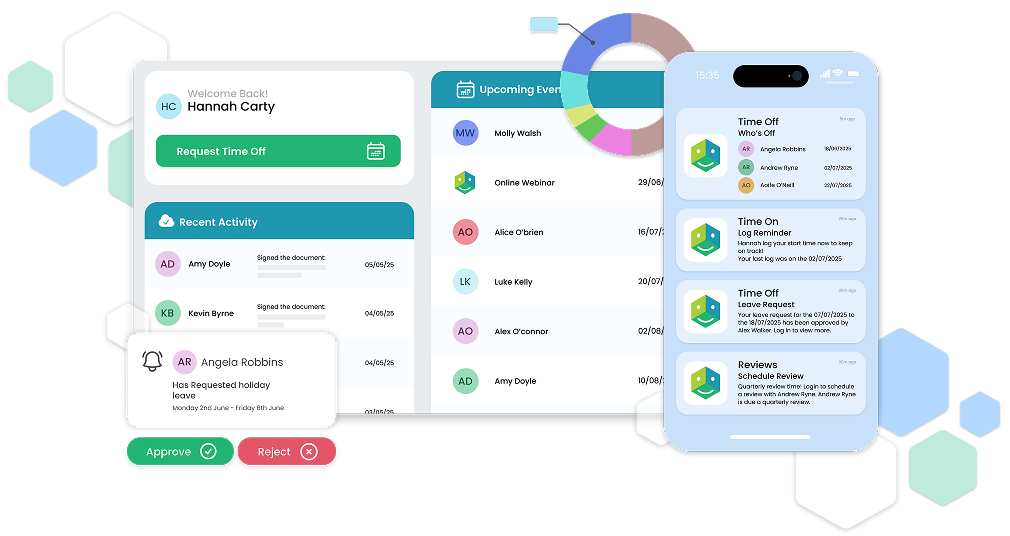Performance management is changing. The traditional annual review process, which looks back over the events of the past year, is being replaced with more frequent communication.
This new approach is coupled with a shift in focus to the future and what happens next. Instead of berating someone for a mishap that happened nine months ago, why not talk about how you can prevent it from happening again? Offer to get them training or support, do what is needed to be a better employer and retain, train and develop your staff.
Real-Time Reviews
By changing the tone and making reviews more frequent and constructive, we can create a conversation between management and employees. A conversation that becomes part of keeping your staff on track and focused on what matters. Reviews also provide a way for management to identify problems before they become massive issues and find out when someone needs help or assistance in reaching their goals.
Employees like to feel like they are progressing. Pay particular attention to employees’ continued professional development. If you upskill them in ways that will make them more capable of delivering results, not only will you see improvements in your organisation, but you will see an improvement in employees’ demeanour and morale. If you invest in your employees, they will invest in you. It’s that simple.
What to do to be successful?
- Throw away the 26-page document! Get rid of the spreadsheets!
- Make reviews more frequent and less document-heavy. If an important conversation happens, record a summary, save it, schedule the next one, ensure your employee responds, and the job is done.
- Allow the employee to record feedback and have their voice heard.
- Measure your employee engagement against the values and goals of the business.
- Invest in employees by advocating training when needed and recording the request on the system.
- Look forward, not backwards, with reviews focused on performance now, not six months ago. If there is a problem, address it in real-time.
- Spot problem management or disruptive teams early and intervene positively.

More frequent reviews… Why?
The performance management systems in many companies are not working.
By limiting performance reviews to an annual tick-box exercise, opportunities are likely missed to catch and address problems early. Disengaged employees can lead to higher turnover, workplace strife and disruption. By increasing the frequency of reviews and making them less formal, employees feel connected and engaged.
A lot of employees and not a lot of time
Performance management tends to be a fairly contentious process. Not only is it controversial, but it also sucks up valuable working hours and burdens management. Managers are stuck having to keep track of scheduling and conducting reviews with multiple employees who may all have quite different review cycles and who may hate the process.
The multinational consultancy firm Deloitte estimated that its staff spent 1.8 million hours a year on reviews. With a staff of over 65,000, that is a significant chunk of time. Meeting once a year is not enough. Goals and objectives can change from month to month, and monitoring employee performance should be done on an ongoing basis.

In our Real-Time Reviews Webinar, we explain how the system facilitates scheduling, composing, and conducting reviews while gathering employee feedback.
More reviews, more communication
By making the review process less intense and more frequent, a company can benefit from better employee-manager communication and higher employee engagement. Reviews should be used to record, track, and prioritise people’s goals, aspirations, training needs, and career paths.
It is important to have a set of values and goals that can be used to measure employee performance. These can then be shared with employees and used as a barometer for how their work is progressing. For performance management to add value to your business, it needs to be less about the past and more about the future. We don’t need to use reviews to punish and reward employees!
One thing that we also feel is often overlooked about the review process is the ability can give company management an overview of how the employee-to-manager relationship is working.
By keeping an eye on the review process, HR can detect managers who are struggling or excelling. A bad manager can cause a high turnover and cost your business money.
There is nothing to lose by trying a new approach. Recent research suggests that 90% of companies that have made performance management less scary, more frequent, and open are benefiting from the change.









